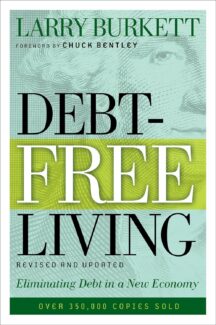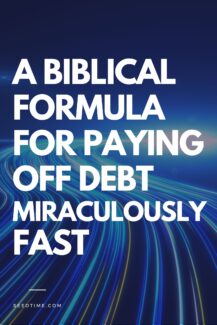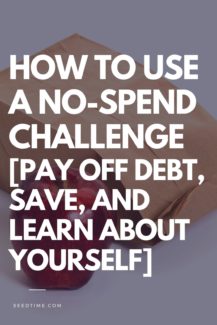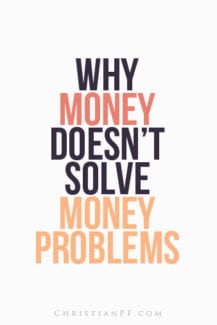How We Paid Off Our Mortgage in 3 Years: 5 Unconventional Steps We Took I know it feels nearly impossible to even buy a house these days, let alone dream about paying it off early. But even if you barely scraped together enough for that down payment, I don’t want you to fall for the […]
Debt Help
Debt-Free Living by Larry Burkett – Book Review
Explore essential insights from Larry Burkett’s Debt-Free Living in this detailed review. Uncover key lessons for achieving financial freedom.
A Biblical formula for paying off debt miraculously fast
Today we discuss a biblical formula for paying off debt miraculously fast. While the idea of a biblical formula may seem odd, we explore a passage from 2 Kings 4 that reveals the key to unlocking supernatural financial miracles. Throughout this article, you will be inspired by real-life examples of ordinary people turning their seemingly […]
How to use a no-spend challenge to pay off debt and save (with Frugal Friends)
(The following is an abbreviated transcription from a podcast Linda and I recorded with Frugal Friends Jen Smith and Jill Siriani. Please excuse any typos or errors.) Today we are chatting with Jen Smith and Jill Siriani (hosts of The Frugal Friends podcast). Jen is the author of a best-selling book on Amazon called The […]
Why Money Doesn’t Solve Most Money Problems
I mean if you were making what your boss is making, it will not fix your financial squeeze. There is a famous principle that expenses rise to meet income, so if you are having a hard time paying your bills or making a dent in your mountain of debt money is NOT your answer.
My Checklist To Financial Freedom (PDF)
I love checklists. Especially when I want to make progress in a particular area but don’t exactly know what steps to take. This is a personal financial checklist that covers many of the steps I have taken over last decade that have helped me move from being a financial mess to having a little bit of an idea of what’s going on.
Getting out of debt success story: How they paid off over $229K in debt
(The following is an abbreviated transcription from a video Linda & I recorded with Mel & Murph Stewart. Please excuse any typos or errors.) Mel and Murph Stewart (of FitNFunds) have an amazing debt payoff success story. Linda and I were so blown away by their accomplishment that we had to share their feat as […]
How This Couple Paid Off $52k In 7 Months
(The following is a transcription from a video Linda and I recorded. Please excuse any typos or errors.) Today Linda and I are talking with some friends of ours (Chris and Andrea Petrie), whom we met last October, and they have a really cool story that we want to share with you. They paid off […]











